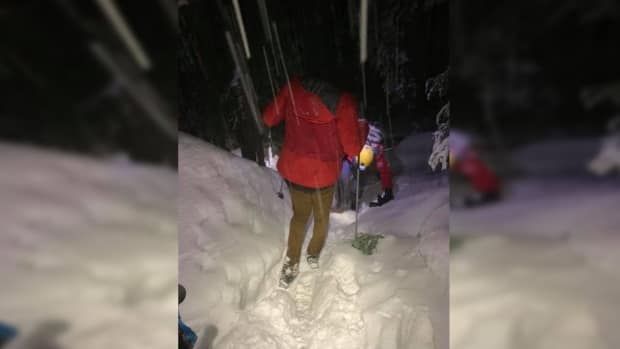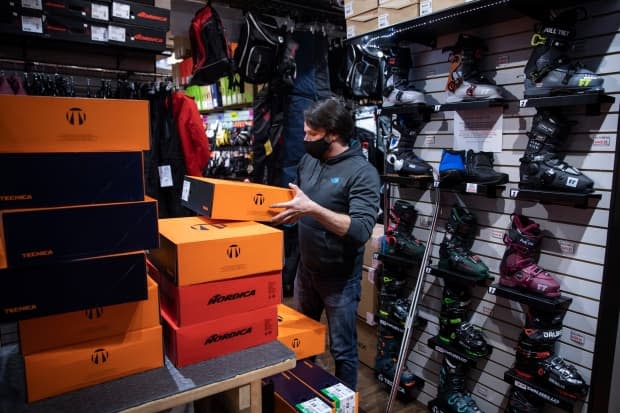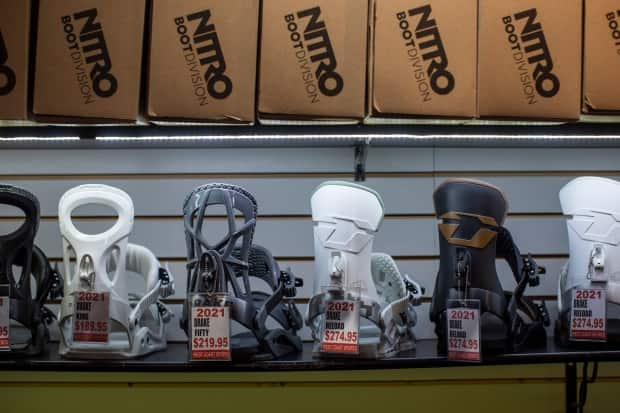Rescue crews worried about more distress calls this winter as sports gear flies off the shelves
Search and rescue crews in B.C. are worried that adventurers will put themselves at risk by heading into the winter wilderness unprepared as the COVID-19 pandemic limits travel options this year.
They're predicting a repeat of this summer in B.C. when hiking and camping gear sold out as people rushed to the outdoors, followed by a record number of calls for help.
The senior manager of the B.C. Search and Rescue Association says there have already been far more rescue operations in the fall months compared to normal years.
"A lot of it is a lack of preparedness," said Dwight Yochim. "If you look outside in Vancouver right now, there's no snow [but] within a half an hour from anywhere in Vancouver, you can be in two or three feet of snow.
He says unless you're prepared for snow, you can get into trouble.
A trio of ill-prepared hikers was rescued off Mount Fromme in North Vancouver on Sunday after one of the hikers twisted an ankle. The group had wandered off-trail and called for help around 4:30 p.m. PT. One of the hikers was reportedly wearing shorts.

Yochim says it's not uncommon for crews to rescue people who aren't dressed for the conditions.
"They've been rescuing people with jeans that are frozen solid because they've gotten wet during the day and by the time they're found, the jeans have just frozen solid."
Skis and snowshoes out of stock
Local winter sports shops say they're experiencing record sales of winter gear similar to what bike shops and outdoors stores saw in the summer.
"We brought in several sizes [of snowshoes] and apparently they are now sold out for the season," said Chris Turjanica, store manager at West Coast Sports. "Whatever we have in stock is what we have for the remainder of the season."

Many of the customers haven't skied in years, or have used rentals in past years, and are looking to upgrade their equipment, he says.
However, Turjanica says it's not only beginner skis and snowshoes that are selling out. Anticipating that ski resorts may be forced to shut down, some customers have decided to invest in touring skis and snowboards to explore the backcountry.
"It's scary," Turjanica said. "Seeing this large influx of people, from my perspective, they're thinking that, 'Oh, I see this on YouTube. I can just go back there.'"
The Backcountry Skiing Canada website says backcountry skiing is "an inherently dangerous activity that requires experience and knowledge to travel safely." Training on how to recognize and stay safe in avalanche terrain is recommended by most guides and safety experts.
"When I mentioned avalanche safety training to people they don't know what I'm talking about," Turjanica said of some customers. "And that's kind of scary."
Additional equipment like shovels, probes and airbags can bring the cost of a backcountry outfit up to several thousand dollars.

Yochim says people who want to make the most of the outdoors this winter should stick to their local trails and lower elevations to start.
"Don't go up onto the mountain peaks, try some lower elevation trails, get used to it, get your stamina up, your level of physical fitness up, do a bit of training."
He recommends downloading the BC Adventure Smart app which not only provides tips for staying safe in the outdoors, but can help record a trip plan that can be accessed by rescue teams.


